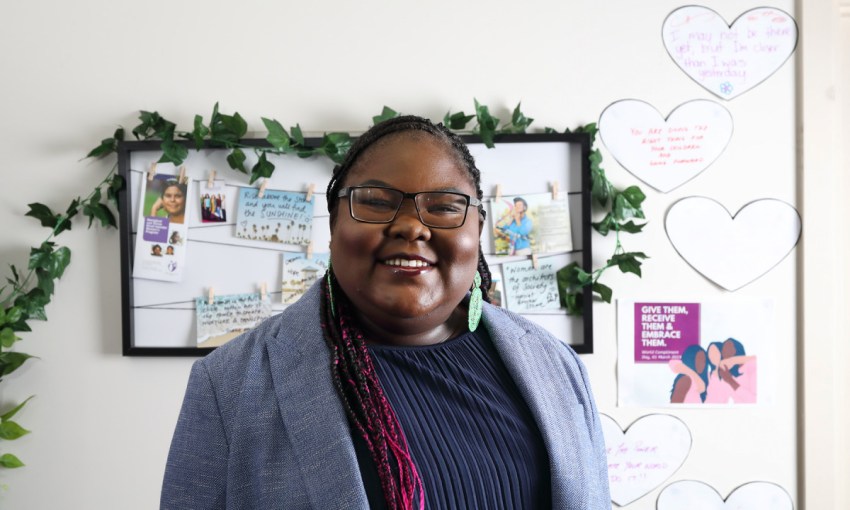Zita Adut Deng Ngor, 40, was five years old when she fled South Sudan with her family and arrived in South Australia in 1985. She went on to study law and is now CEO of the Women’s Legal Service and a respected community leader. She was also nominated as Australian of the Year in 2016. Her story is one of resilience, determination and unshakable faith in the need to make a difference.
“I live not only for myself but also for them”
Can you tell me about growing up in South Sudan?
I’m the second oldest of eight children. Unfortunately, due to the civil war and lack of access to good medicine, both my oldest sister Mary and my brother Ngor, who was born after me, passed away. Mary passed away when she was one and my brother when he was three years old and I was about four and a half.
After my brother Ngor, I have a brother named Peter (Kur), Angelina (Akoul), Nyandiid (Didi) and Esterina (Achan), who are twins, and a baby sister Sheba.
My memories of Sudan are filled with lots of colour – shades of brown, vivid greens and multi-coloured women’s clothing. There were homes made from different materials including light and dark brown muds and old colonial-style white homes. There was a strong sense of community and people seemed to look out for one another. As a small child under the age of five, I would be sent to the shops by Mum to buy veggies or other household items. I remember on one occasion having to make a number of trips back and forth because I couldn’t remember what I was told to get. The shopkeeper was very nice and understanding!
Even though there was conflict and the situation was risky for my parents, as a child, I was sheltered and oblivious to all of this, therefore my memories of childhood in Sudan are filled with fun memories.
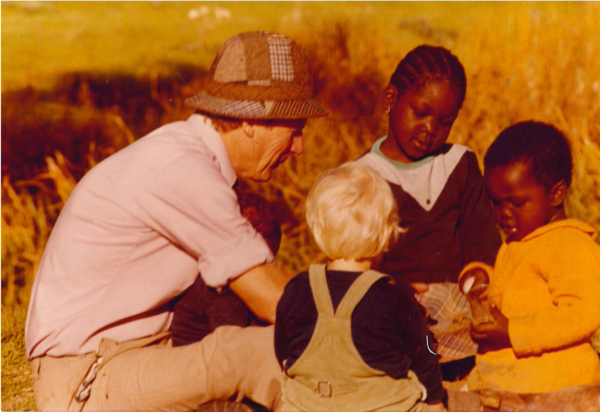
How did your family end up coming to Australia?
My father Mariano had to flee Sudan because he was actively involved in politics. He wanted to see a Sudan where people could be treated equally regardless of their religious and political beliefs. Because of his involvement with Sudan’s Liberation Movement he had to leave quite quickly. Through assistance from various sources, he was able to leave within a two-week period.
He arrived in Australia and was able to undertake studies in agriculture at Roseworthy College near Gawler. My mother, Margaret, my two brothers and I went to live in Khartoum with my uncle for about a year. It was during this time that Ngor passed away.
We were very fortunate to leave Sudan when we did because approximately 24 hours after we had fled, government forces came to the house where we were staying to look for us. So, essentially, I would not be here telling you our story if we had decided to delay our trip to come to Australia.
What are some of your most vivid childhood memories?
I will share two memories. One from my time in Sudan and the other from when I first arrived in Australia.
My most vivid memories are from the time I lived in Khartoum, the capital of Sudan, when we were staying with my uncle. I remember at such a young age, having no concept of fear, because we could wander around in our neighbourhood without being afraid that something would happen to us. I remember one game of hide and seek with the children from the neighbourhood, running in and out of people’s homes looking for my friends. Some of the houses I had set foot in before, but some I had not. I remember running into one house and asking the homeowner if they had seen my friends. I remember one house had these beautiful blue and white tiles on the ground. Nobody questioned us as children. I could have stayed a child forever in that carefree environment.
When I arrived in Australia in 1985 with my mother and brother, Peter, to join my father, I was enrolled in a local Catholic school in Gawler called St Brigid’s School. Neither my mother, brother or I could speak one word of English. The first few weeks and months were interesting because the teacher could not communicate with me, nor I with her. However, children never have any issues communicating even if they don’t speak the same language.
My first incident in Australia occurred during the first few days at school. In the morning, I had seen all the children being kissed and hugged by their parents. As a child in a new country, new place and surrounded by new faces, I automatically assumed that this was how people interacted with one another. So, I decided to kiss and hug everyone I saw that day. My teacher could not talk to me to tell me that this was not right, so my father got called to attend school. Luckily, as a small child, I don’t think I knew what it meant to be embarrassed. Also, the passage of time has allowed me to now be able to laugh about this incident.
Later, we moved to Torrensville where I attended Torrensville Primary School. I always enjoyed school and in particular, I loved being able to read. I think it was my passion for reading that lead me to the path of choosing to study law in some way.
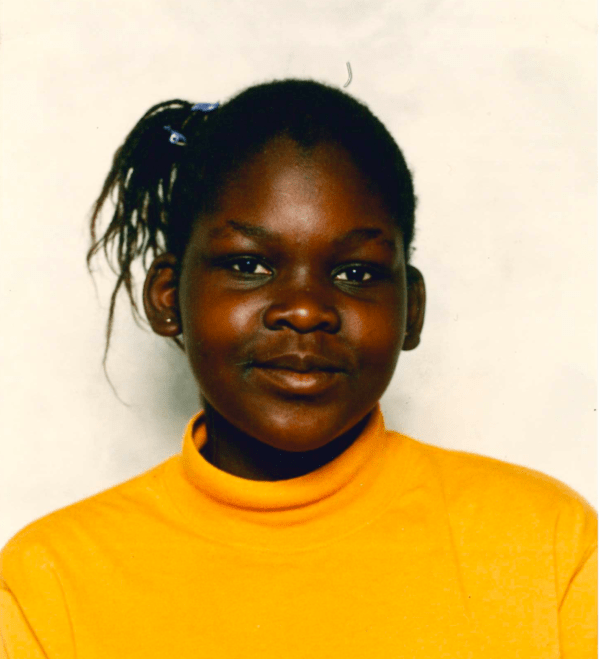
What was high school like?
I went to Adelaide High School and I have to say, by and large, my memories of high school are really happy. However, it was also during high school that I learnt some harsh truths about the personal challenges that I would encounter as a person of African descent. I remember approaching the school counsellor at one point in about year nine regarding issues with other young women in my year level. To add some context to this issue, it was at the stage when many young women can become really mean to one another and friendships can rapidly end. The counsellor simply dismissed me by saying that maybe I did not understand what the other two girls were saying to me because I couldn’t understand English. I remember going home being really upset and talking to my mother about it, because English was the only language I spoke so I couldn’t understand why she would say that I didn’t understand it.
In terms of friends, I was very lucky that the small, core group of friends that I had in high school, from mine and other schools, have remained my friends throughout my life. Having a group of people who you have grown up with, despite having diverse interests and moving to different states, is very valuable. When we get together, it seems that we have never been apart.
The teachers that really stand out in my mind are my primary school teachers, Ms Brown and Ms Williams and, from high school, Mr Searle, who was my maths teacher. I remember Mr Searle because he encouraged me to do better in maths because he recognised that I could do better. Ms Brown and Ms Williams galvanized my love of reading and poetry.
What did you want to be when you grew up?
From a young age I’ve been inspired by Mahatma Gandhi and Martin Luther King. I have always had a strong desire to contribute in a positive manner to society. So, with this in mind, I wanted to first be a police officer but, when I was about eight or nine, I decided that it was too dangerous to be a police officer and it was about then that I started to play around with the idea of being a lawyer. I eliminated being a geneticist at one point because I didn’t like maths. I also dabbled with being an archaeologist, but ultimately the call for the law was strong and I followed my calling. I ultimately picked law because I think it has the ability to be a tool for good, the law can bring about positive change by creating standards that we can all live by in a harmonious manner.
Did you go straight to university from school?
Yes, I thought of doing a gap year teaching English overseas. However, I was too worried that if I took a year off then I may not go back to uni. During uni, I had various jobs including being a disability support worker, a call centre operator and a youth worker.
I must acknowledge the Smith Family who granted me a scholarship at university. The Smith Family scholarship enabled me to purchase the really expensive law books and to buy my first computer. In turn, my association with the Smith Family allowed me to experience one of the best volunteer opportunities, which was being a tutor. I was fortunate to tutor the same child for two years before I had to stop because I relocated for work purposes.
Entering law school at Flinders University was extremely daunting for me because, even in 1998, there was not much diversity reflected amongst the law students. Most students who seemed to do law came from private schools and/or had family members who were involved in the profession and there was not much in the way of cultural diversity amongst the students. I know the situation is different now and it would be good to one day see the diversity within the general community also reflected amongst the legal profession.
I graduated from law in 2003 and my postgraduate studies include a Masters of Public and International Law from Melbourne University and an MBA from the Australian Catholic University. I have specialised in civil law, immigration and family law.
Last year I was also honoured to be the recipient of the Dr Robyn Layton AO QC award from the Women Lawyers of SA Association.
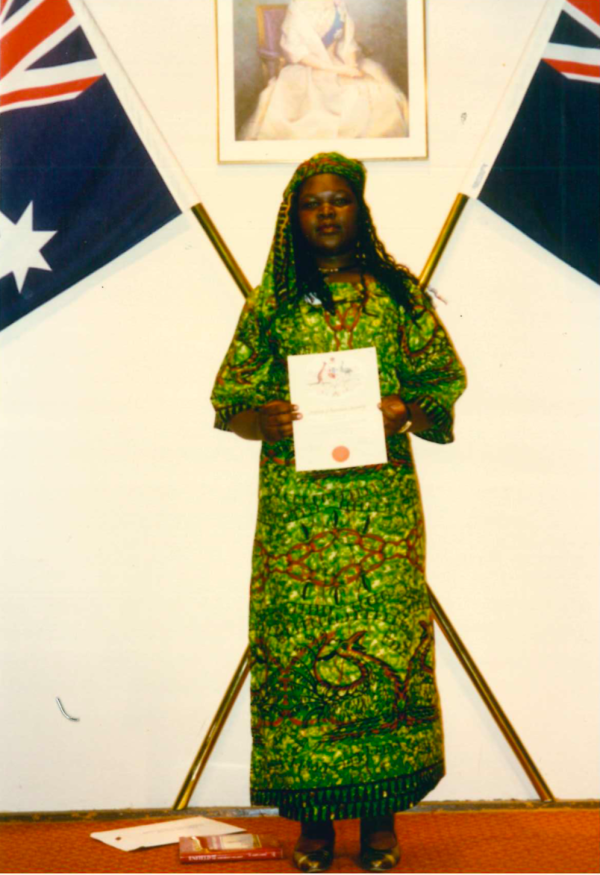
You stood for the Senate in 2013. Tell us about that experience.
Standing for the Senate was not something that I had planned to do but the opportunity presented itself. After discussing the offer of standing with family, debating the pros and cons of such an approach, my biggest concern was the potentially negative impact that running could have on my family and other members of my community. However, what really got me over the line was that, although I was running second on the Senate ticket, this was an opportunity to allow people to see more diversity. I wanted to let other people who may have a similar background to me, to be comfortable with putting their hands up.
I was worried about receiving horrible messages from members of the public but to be truthful, the overwhelming interactions with the public were positive. There were only two or three messages that were inappropriate.
It was also great to see so many people genuinely interested about what was happening in our community. I also gained a deeper appreciation for the gruelling schedule that politicians maintain. There are no weekends or “me” time, when you are on the campaign trail. Lastly, I think that even though I was really scared about saying yes, sometimes it is the most scary situations or opportunities that allow for growth.
You have had many firsts – first in your family to graduate from university, first African-Australian woman to run for the federal Senate. How have your parents reacted to your success?
To be honest, one of the things that my parents have not been good at is expressing positive emotions. So when I graduated, the response from my father was that it was simply “good”. It was actually from other people, such as close family friends, that I found out my father was very proud. I would have never known otherwise if it was not other people telling me.
It is not a part of our culture for parents to openly express or say good things to their child because it is believed that to do so would spoil the child, so it would be highly unusual for my parents to tell me that I did well. Also, doing well at school and prioritising education was just expected within my family.
As a child, I was constantly reminded that whilst I was enjoying the privileges of growing up in Australia, I had family, cousins and other members of the South Sudanese community who were dying and struggling to live. Therefore, I was very conscious and aware of the fact that being here in Australia was a privilege that I should not take for granted.
You are now CEO of Women’s Legal Service – what does that involve?
Being the CEO of Women’s Legal Service is a role that has at times brought me to tears, but at other times has brought so much joy and meaning to my life. I have been fortunate to work alongside some amazing women, and men, during my time as CEO. One of the stories that I wish the public could see or hear more of is the amazing work done by so many people within the community legal centre sector. At Women’s Legal Service, the lawyers and community support workers, work above and beyond to support women in navigating the legal system. There is so much that they have to deal with to achieve the outcomes they do. The women who access our service and travel the journey with us, sometimes for several years, display tremendous strength despite all that life throws at them. Their personal stories inspire me to do more and to be better.
My role as CEO is primarily to ensure that that the doors stay open whilst there is demand for our service. This sounds easy but, unfortunately, the reality could not be further from the truth. Often, I find myself having discussions with decision-makers about funding decisions that should be no-brainers. So much damage can be done with a stroke of a pen! But at the end of the day, it is the staff, volunteers and women (and their families) who access the service, that keep me going.
What drives you these days?
My ultimate desire is to see a better world. Secretly I am an optimist and I believe that we can and should do better. I also believe that we don’t have to achieve grand gestures, such as ending apartheid or leading the civil rights struggles, but that we can do little things that create ripples through our families and communities – simple things like being kind to a stranger, helping a neighbour, volunteering at your local community centre. Just an hour a week can make a difference.
Are you married? Kids?
I’m not married but I have a big, big family with siblings, cousins, nieces and nephews. We have a very extended definition of family that creates multiple layers of relationships and obligations. There are times when I feel overwhelmed by this, but at the same time during periods of joy or grief, the strength of the family and community is on display as we come together to support one another.
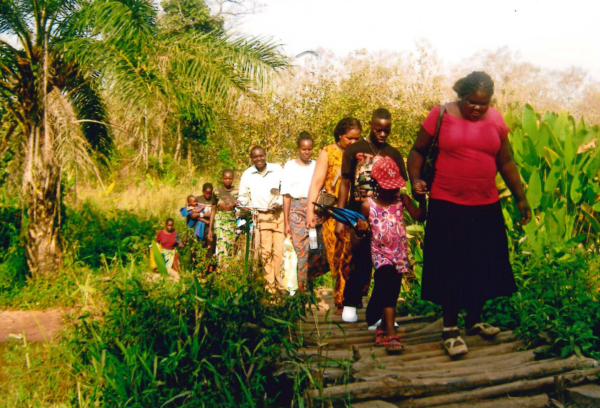
What has been your biggest challenge in life?
My biggest challenge and one that I have not yet made peace with is feeling constantly like I have not done very much with my life to warrant this level of attention. When I look at my life and read about other people’s inspiring lives and what they have overcome, I often think to myself that I have not really done very much, that there is still so much to do and to do those things well. So, for me the biggest challenge is being content.
Biggest mistake in life?
My biggest failing is treating everyone like I would like to be treated. Unfortunately, I have found that there are individuals who will take advantage of your kindness. This, however, does not stop me although I have begun to learn to say “no” to more things.
What brings you joy?
This is a hard question! There are many things that bring me joy: giving gifts, cooking and baking for people, being able to go for a leisurely stroll outside, and learning something new. It is the small things that truly spark the greatest joy.
How have you experienced loss?
At different stages, I have suffered loss of different kinds. The significant losses that I have suffered in my life are that as a refugee fleeing South Sudan, I was disconnected from close friends for a long time. I did not meet close blood relations until the late 1990s, and I also lost the ability to speak the first two languages that I spoke, Arabic and Dinka, as part of the process of acclimatising to Australia. The deaths of my older sister who I never met and the death of my brother, Ngor, have had significant impacts on my family and also on me. Being the oldest child by circumstance rather than birth order, I feel that I have an obligation to take the chances and opportunities offered to me to do something positive. I live not only for myself but also for them and that to some extent is reflected in my traditional name, Adut, which denotes not only my birth order and the death of an older sibling but also relates to a period of the grief process.
Pet hate?
My biggest pet hate is people who can never accept responsibility for their own actions. I cannot stand people who blame others or circumstances for decisions that they have made.
Who makes you laugh out loud?
A work colleague, by the name of Alex, has a similar personality to the father, Gus, from My Big Fat Greek Wedding. She has the most wonderful insight and perspectives on all facets of life.
How do you describe yourself in a few words?
A lot of people may think that I am an extrovert but I am actually an introvert, who loves baking almost as much as I love to eat good food. I’m also a lover of books but I don’t have as much time to read as I would like, and finally, I’m a child at heart who enjoys to laugh and play with my nieces.
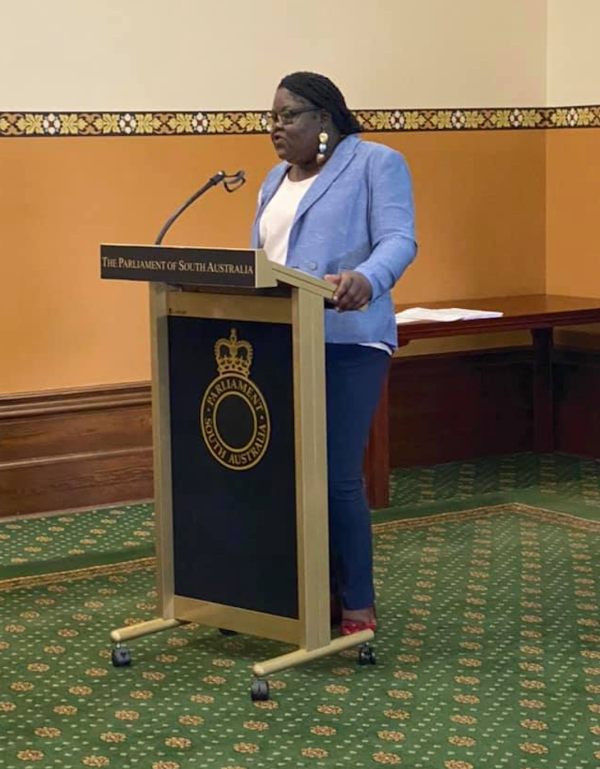
What do you worry about?
I worry most about what kind of world we are creating for our future generations. I sometimes worry that there is a little less kindness, patience, empathy and long-term planning in the world. We seem to want everything now and do not take into account the feelings of other people or the state of the world that we leave behind. We are no longer willing to undergo a bit of discomfort for long-term benefit.
What are you looking forward to?
At this moment, as we are currently experiencing and living COVID-19 restrictions, I am looking forward to dining out somewhere nice, maybe going to see a show or a concert. I am now regretting that I did not see more Fringe shows when I had the chance.
Who inspires you and why?
I have so many prominent people who inspire me, for example Martin Luther King, Nelson Mandela, Maya Angelou to name just a few, but really at the end of the day ordinary mums and dads inspire me. In my work, I see the impact that parenting can have on a person’s life trajectory. Given the significant impact and role that parents play, I believe it’s sad that we as a society do not provide more supports for families. We only ever seem to respond or provide support when it is at a crisis stage. Maybe if we were willing to provide support and to receive support earlier, so many of our societal problems would be lessened because we could mend and build solid foundations.
One thing we don’t know about you?
I love to sing but, unfortunately, I was not blessed with a great voice so I have been told that I should sing in the shower only. This, however, does not stop me from singing and irritating both my family and staff.
Just once, I wish I could….
Spend a whole year travelling the world and immersing myself in different cultures, communities and families. I love being able to see how people live through different lenses.
Zita Adut Deng Ngor was a finalist in InDaily’s 40 Under 40 Awards 2019.
Nominations are now open for the 40 Under 40 Awards 2020, click here to enter, or nominate someone else.



